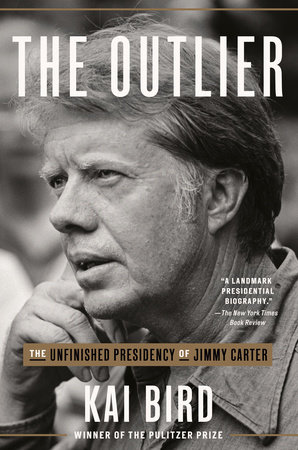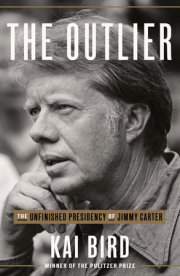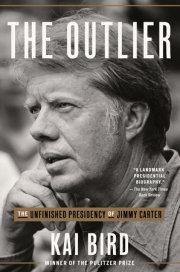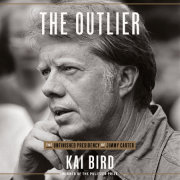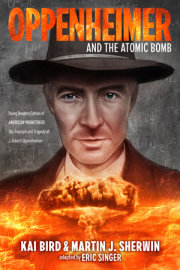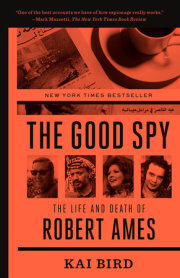Chapter 1The Past Is Never DeadWe had too much money to be ostracized. —Miss Lillian
James Earl Carter, Jr., was always an outlier—as a president and as a boy decades earlier in rural South Georgia. Born on October 1, 1924, in a small hospital in Plains, Georgia, Jimmy grew up on his father’s 360-acre farm two and a half miles down the road in the tiny hamlet of Archery. The Carter family home was a three-bedroom single-story house assembled from a Sears, Roebuck kit. The structure lacked electricity and insulation and had no running water until 1935, when Carter’s father bought a small windmill to pump water from the backyard well into a water tank. Until then, the family used an outdoor privy with four holes. The family’s shower was made by punching nail holes in the bottom of a bucket suspended from a water pipe in the wood ceiling.
The village of Plains, population 479, had electricity “most of the hours of the day,” provided by a large one-cylinder engine. Every time it hit a stroke, the engine blew a smoke ring up in the air. Everyone in town could hear the engine pounding away—until, periodically, it would break down and there would be no electricity at all. Although electricity came to Atlanta in 1884, it took more than a half century to reach Archery in 1938. Carter later recalled wryly, “The greatest day in my life was not being inaugurated president, [and] it wasn’t even marrying Rosalynn—it was when they turned the electricity on because that totally transformed our lifestyle.” Most of the streets of Plains were not paved until 1954. But if Jimmy’s boyhood home was spartan and surrounded by abject poverty, his childhood was nevertheless comfortable and relatively privileged.
Archery was a throwback to the nineteenth century. Jimmy’s father, James Earl Carter, Sr., had a tenth-grade education before dropping out to join the army. In 1903, when Earl was only ten years old, his father, William Archibald Carter, was shot dead during a violent brawl with a business rival. They had been arguing over who was the rightful owner of a desk. Earl was certainly not country “white trash”—but neither was he part of the southern plantation aristocracy. By the late 1920s, he made more than a comfortable living growing peanuts, corn, and cotton and drawing “rents” from his Black tenants. He managed to expand his farm acreage even during the boll weevil blight of the 1920s, which wiped out many cotton farmers.
“Daddy was a very aggressive, competent farmer,” Jimmy recalled. He was always trying to turn any harvest into cash. One year he planted ten acres of tomatoes, and they turned out beautifully. But so did everyone else’s tomato patches all over Georgia that year. “I remember a man named Mr. Rycroth and I loaded his truck with tomatoes,” Jimmy said, “and we rode all over Georgia, trying to sell the tomatoes. We couldn’t sell them at all. So, we came back home and told Daddy and he decided to make ketchup out of those tomatoes.” Earl was unusually entrepreneurial. “We had sheep,” Jimmy said, “and Daddy would send the wool off to some central manufacturing place, I never knew where, and get blankets back, and we would sell blankets in our local store. We grew beef cattle. We milked twelve cows at most. . . . Daddy would process the milk, either making vanilla or chocolate milk to sell in little 5-cent bottles that he would haul around and put in different grocery stores.” They grew sugarcane that Earl turned into a syrup and bottled under the label “Plains Maid,” with a picture of a pretty girl on the label. They plucked the down from a flock of geese to make down comforters and pillows. “Everything Earl Carter touched turned to money,” said his nephew Hugh Carter.
A short, stocky man, Earl dressed in store-bought suits, wore a fedora in the winter and a straw hat in the summer, and drove a Model T Ford and later a 1937 Oldsmobile. He sometimes taught Sunday school at the Baptist church—but he refused to sit for the sermons because he thought them boring. Earl had an easygoing side to him. But over his wife’s objections, he refused to give up his Friday-night poker games. He enjoyed playing tennis on a red clay court he had constructed immediately adjacent to his Sears, Roebuck home. Earl was a “very accomplished tennis player,” Carter recalled—and by the time he was thirteen years old, so too was Jimmy. Earl bought Jimmy his own riding horse, a Shetland pony named Lady, a ping-pong table, and plenty of books. Some years later, Earl built a three-bedroom guesthouse on a nearby property, complete with a swimming pond. They called this family retreat the “Pond House.” Earl tightly controlled the family’s monthly budget, and eventually he owned five thousand acres of prime farmland, a grocery in Plains, a fire insurance agency, and a peanut warehouse and brokerage business. Upon Earl’s death in 1953, his net worth was a quarter million dollars—or about $2.4 million in today’s dollars.
Growing up in Archery, Jimmy was barefoot from early April until the cold arrived in October: “There was always an argument which my parents always won about how early I could take my shoes off and how early I had to put them back on.” Every autumn Jimmy had plenty of time to go hunting with his friends for squirrels, rabbits, and quail. When it was too wet to work in the fields, he would hike down to Chucahatcha Creek with his mostly Black playmates. They’d catch catfish and eels. Occasionally, the boys played baseball. There were only three whites on the team, Jimmy and the Watson boys, and the rest of the team was Black.
Jimmy’s closest boyhood friend was A. D. Davis, whose relatives were tenants on the Carter farm. “Jimmy and them [the Carter brood] were raised up with nothin’ but colored people,” A.D. later told a reporter. “He ain’t never acted like he was more’n somebody because he was white.” They played together in the fields and worked together. And sometimes Jimmy’s mother, born Bessie Lillian Gordy—whom everyone called “Miss Lillian”—took them to the Rylander Theatre in Americus to watch movies, seating Jimmy with his Black friend in the “white-only” downstairs section. But as A.D. grew older, he’d insist on sitting in the segregated “black-only” balcony seats. That was the way things were.
Some two hundred people lived in Archery, but aside from a railroad foreman, the Carters were the only whites in the hamlet—and most of the Blacks depended on Earl for their subsistence livelihood, working as day laborers. Aside from Earl, the leading figure in the community was an African American preacher, William Decker Johnson. Born in 1869, Johnson was ordained as a bishop in the African Methodist Episcopal Church. In 1911, he moved to Archery and founded a vocational school, the Johnson Home Industrial College. He regularly preached at the St. Mark Church in Archery. Bishop Johnson was a singular influence, a rare Black man who owned property, drove his own car, and traveled across the country. Miss Lillian enjoyed talking to him and scandalized her husband by inviting the bishop into her home to chat. Jimmy occasionally heard the bishop preach at St. Mark’s Church and listened to the Black choir.
Most of young Jimmy’s childhood playmates were the sons of his father’s Black tenants, and they spent their days roaming the woods, hunting, and fishing. He had one white friend, Rembert Forrest, who sometimes rode his horse out from Plains to visit Jimmy. If his parents were away in Atlanta on business, young Jimmy would spend the night in the nearby wooden cabin occupied by Jack and Rachel Clark, sleeping on a pallet on the floor. Jack Clark was Earl’s foreman, the only Black tenant who received monthly wages. Jimmy followed Jack around the farm “like a puppy dog and bombarding him with questions.” Jack often took Jimmy into the woods to hunt raccoons and possums. Rachel sat with Jimmy, watching him fish in the creek and telling him folktales to while away the hours. Though illiterate, Rachel was a poised and dignified woman. Jimmy thought of her as an “aristocrat” and a “queen.” In the evenings they often played checkers or seven-up, a two-player, trick-taking gambling card game popular in the nineteenth century. Rachel was a small woman—and the best worker on the farm. She could pick 300 to 350 pounds of cotton a day—a hundred pounds more than anyone else, including Jimmy, even when he was seventeen or eighteen years old. “Rachel was not the kind of woman that Mother would ever have asked to do housework,” Carter said. “I don’t know what Rachel would have done if Mother asked her. She probably would have said, ‘Yes, ma’am.’ But Rachel was a little too aristocratic to do that kind of work.”
She taught Jimmy to fish, but she usually handled seven fishing poles at once and often caught three fish to every one Jimmy caught. But it wasn’t a competition. “She was nice and gentle,” Carter recalled. Rachel was just very self-assured and independent. In her later years, she’d walk around with Maccoboy snuff in her lip. She always wore a long apron with a can of beer stuffed in the pocket.
Copyright © 2021 by Kai Bird. All rights reserved. No part of this excerpt may be reproduced or reprinted without permission in writing from the publisher.

